Ties between ISI, CIA broken down, says Gilani
PM offers support for US drone strikes, provided Pakistan is in on decision-making.
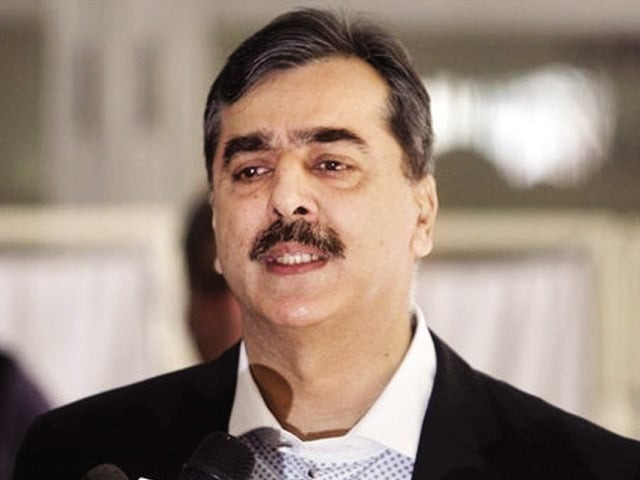
Ties between ISI, CIA broken down, says Gilani
Amid hostile ties and mistrust between Pakistan and the United States, Prime Minister Yousaf Raza Gilani said in an interview to TIME magazine on Wednesday that cooperation between the ISI and its American counterpart the CIA had broken down and that Washington and Islamabad differed on how to fight terrorism.
Gilani said that continuing to work with the US could imperil his government, unless Washington takes drastic steps to restore trust and win over 180 million Pakistanis.
However, he did publicly offer, for the first time, to support US drone strikes inside Pakistan, provided that Pakistan is in on the decision-making, reported TIME.
In the interview, the prime minister warned that his government was accountable to an electorate that is increasingly hostile to the US. “I am not an army dictator; I’m a public figure,” he told TIME. “If public opinion is against you [referring to his US allies], then I cannot resist it to stand with you. I have to go with public opinion.”
Speaking of the Abbottabad raid that killed terror chief Osama bin Laden, Gilani said, “Naturally, we wondered why [the US] went unilaterally. If we’re fighting a war together, we have to work together. Even if there was credible and actionable information, then we should have done it jointly.”
“While Pakistani opposition politicians have pilloried as an intelligence fiasco the revelation that Bin Laden had lived undetected in Abbottabad, the prime minister testily pushed back against suggestions that his government had caved in to the military by allowing it to hold an internal inquiry into the affair, rather than enforce civilian oversight,” TIME wrote, and quoted Gilani as saying, “We are all on the same page.”
Gilani further said that he does not believe that Washington is really going to cut US aid. If it does, he said, “We’ll cross that bridge when we come to it.”
However, he said he does fear that a deteriorating relationship with Washington could hurt Pakistan’s fight against militancy. “When there’s a trust deficit,” he said, “there will be problems in intelligence sharing.” Asked about the reason for this trust deficit, Gilani replied, “It’s not from our side. Ask them.”
“Traditionally, the ISI worked with the CIA,” he said. Now “what we’re seeing is that there’s no level of trust.” Relations have deteriorated sharply since last November, when the local CIA station chief was ousted, allegedly by the ISI — a charge the agency denies. They hit a low point amid the standoff over Raymond Davis, a CIA contractor who killed two Pakistani men in January and then claimed diplomatic immunity. Further strain has been caused by the CIA’s covert drone strikes against suspected militants in the tribal areas.
Gilani said the drone war weakens his efforts to rally public support for fighting against extremism. “No one can win a war without the support of the public,” he said. “I say that this is my war, but when drones strike, the people ask, ‘Whose war is this, then?’” Still, Gilani said that he was open to renegotiating the terms of the CIA’s program.
“A drone strategy can be worked out,” Gilani said. “If drone strikes are effective, then we should evolve a common strategy to win over public opinion. Our position is that the technology should be transferred to us.”
Still, he added, he would countenance a policy in which the CIA would continue to operate the drones “where they are used under our supervision.” Gilani indicated that he hoped to see a restoration of closer ties with Washington but put the onus on Washington to gain the support of Pakistani citizens. “They should do something for the public which will persuade them that the US is supportive of Pakistan,” he said. As an example, he cited the 2008 US-India Civil Nuclear Agreement. “It’s our public that’s dying, but the deal is happening there,” the prime minister said.
The interview continues with Gilani questioning rhetorically, “You claim there’s a strategic partnership? That we’re best friends?”, and then concludes with a dramatic undertone, “ ‘When we passed each other, she didn’t deign to even say hello,’ he intoned, quoting the Urdu poet Mirza Ghalib. ‘How, then, can I believe that our parting caused her any tears?’”
Published in The Express Tribune, May 13th, 2011.

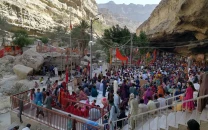
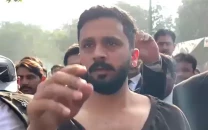
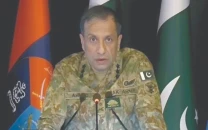

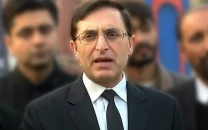
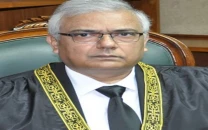












COMMENTS
Comments are moderated and generally will be posted if they are on-topic and not abusive.
For more information, please see our Comments FAQ